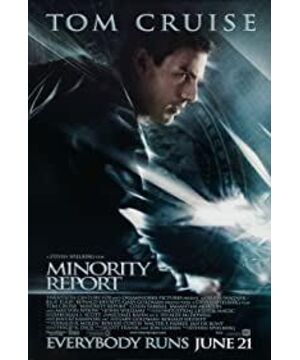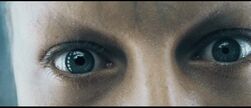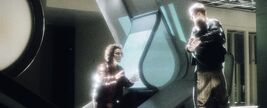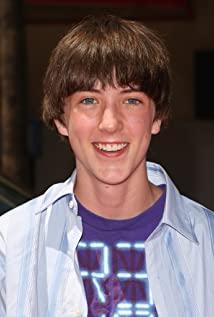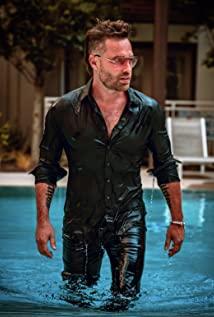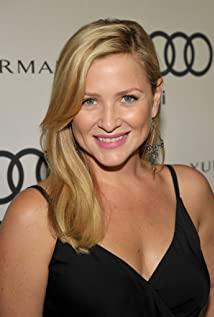Among Spielberg's works, "Minority Report" cannot be ranked as a "classic", nor is it the most imaginative work, but it is definitely not a failure. In my opinion, it was a series of "choices" that caused the "Minority Report" to become an embarrassing work, and it may become a classic if it takes a further step or a step back.
"Minority Report" is adapted from the short story of the same name by "Science Fiction Ghost" Philip Dick. It is undeniable that Philip Dick's science fiction novels have extraordinary imagination, but the "sci-fi setting" in the novels often cannot withstand scrutiny. Science fiction and science fiction should have a little scientific basis, and the "science" in Philip Dick's novels is often attributed to agnosticism, as is the case with the "Minority Report".
The "Crime Prevention Center" in the "Minority Report" was established on the basis that three "prophets" with superpowers were able to foresee crimes. What? ! "prophet"? This does not belong to the category of "science" at all, but the category of "theology" or "religion". During the six-year trial operation, the general public was convinced of the "scientificity" of this "religious" institution. This is an insult to the intelligence quotient of all mankind.
The concept of "crime prevention center" is very good, but its "scientificity" is set to zero! In fact, based on neuroscience, based on the collection of human brain waves, etc., are much more reliable than the setting of "prophet". Of course, changing the setting means that the core plot of the murder of the female “prophet”’s mother does not hold, and the entire story structure collapses. Therefore, although the "prophet" setting is endless, it is a "critical setting". Aside from this unreliable "key setting", the story constructed on top of it is still very exciting. It can even be said that Spielberg tells a story full of "dialectical spirit".
Spielberg chose this story, and he also chose this huge BUG—please accept this serious imperfect fact in the movie as appropriate. And more "critical choices", Spielberg puts in the two "life and death choices" in the film.
The first "life and death decision" is when John (Tom Cruise) finds the "murderer" who killed his son. If he kills the "murderer", it proves the accuracy of the "crime prevention system", but he has become a "murderer" because of this, and he will spend the rest of his life in "headcuffs". Of course, he can still regard himself as a law enforcement officer, "enforce law" on himself, and arrest the "murderer" at the same time, but in this way, the accuracy of the "crime prevention system" is greatly compromised. At the time of the "human nature" dilemma, it was the "prophet" who stood up bravely (even if the "prophet" was proved wrong) and shouted: "You still have choice!" (You still have choice.) When John did After the "correct" "choice", he learned the truth again, but his other "choice" was chosen by the "murderer" again-he still "killed" the "murderer".
Spielberg’s filming of this "dialectical" and "reversed" "life-and-death decision" is very beautiful, and Tom Cruise is also very beautiful.
The second "life and death decision" is the end of the movie. In the celebration that the "Crime Prevention Center" was officially put into operation, Rama's conspiracy and crimes were exposed on the spot.
Facing his "mentor", John began his preaching:
"The only question left is, how do you end up?
There is no doubt that the Prophet has seen this.
Not killing me means that the Prophet was wrong, and the Crime Prevention Center followed suit.
Kill me, your future will be ruined, but it proves that the system is effective and the prophet is correct.
So what should you do? What is the price?
(Kill me) It was just another murder. You rotted in hell in'headcuffs', but the people still believed in the Crime Prevention Center.
You just have to kill me, as the Prophet predicted.
Unless, you know your future, that is, you can change the future at will.
You still have choices, just like me. "
"You still have choice." John kicked the ball to Rama.
Rama is an unscrupulous and heinous "bad guy", but John also underestimated his "wisdom".
Rama said: "Yes, I have a choice, and I have chosen it."
"Forgive me! John. Forgive me! Forgive me, my child!"
Rama fell in front of John.
Rama's choice is "smart". If a person is about to die, his "action" is also good.
Rama created a "crime prevention center" stained with blood and destroyed it himself. In a sense, he was an evil "martyr".
In this final "life and death decision", the "funny" John is still inferior to the "old and cunning" Rama. However, although John lost the game, he saved the world.
Isn't it true of Spielberg's "choice"? His gentleness and innocence have enabled his films to capture the vast majority of movie audiences, but they often lack the power to "torture the soul".
At the end of the movie "The Seven Deadly Sins" (1995), Constable Mills (played by Brad Pitt) also faced a "life and death choice". He chose "revenge", thus fulfilling the "martyrdom of a serial murderer" ".
David Fincher's "unfriendly" and "spicy eyes" made people feel a little depressed after watching the movie, but at the same time they gave the audience more room for thinking. For the dark side of the human world, David Fincher turned on the flashlight so that we could see it rotted in the rainy city.
As an extremely clever creator, Spielberg can of course take a step back or take a step back like David Fincher to make the story of Minority Report more intriguing, but in that case, Minority Report will also It's not "Spielberg's work" anymore.
Spielberg’s "unknown danger" and "uncaused chase" in his feature film debut "Flywheel on Blood" (1971) are full of Cult, showing that he can take a step further or take a step back, but he goes After embarking on the road of "serving the broadest audience", it is no longer possible to look back.
View more about Minority Report reviews


